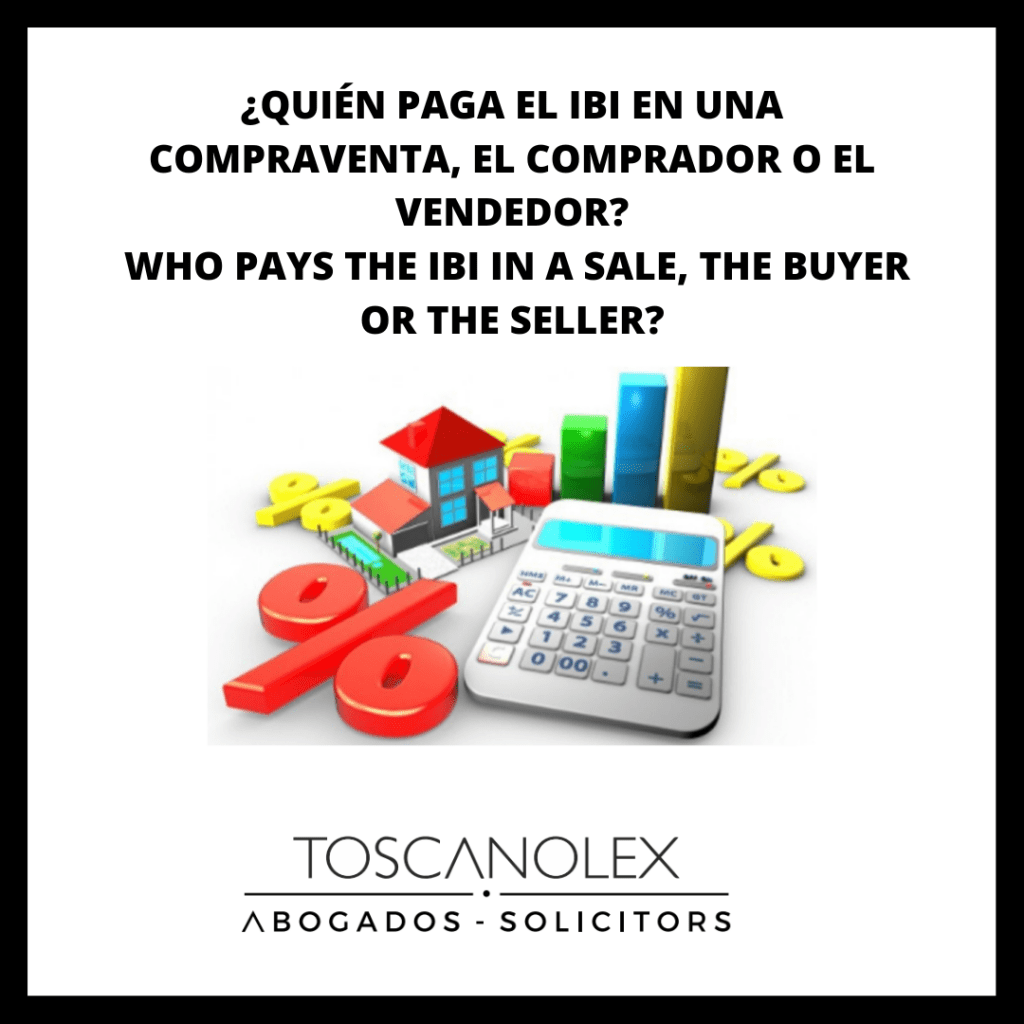QUIEN PAGA EL IBI

¿Quién paga el IBI en una compraventa: el comprador o el vendedor?
Una de las dudas más frecuentes ante la compraventa de un inmueble es definir qué parte debe asumir el pago del IBI del año en que se produce la firma. ¿Quién paga el IBI? ¿Debe abonar este impuesto el comprador o el vendedor? ¿Influye el momento del año en el que se cierra la transacción?
QUIEN PAGA EL IBI
A falta de pacto previo entre las partes (artículo 1255 del Código Civil), la normativa establece que el sujeto pasivo del impuesto es el propietario del inmueble en el momento del devengo; es decir a día 1 de enero del año corriente. Por tanto, si no hay un acuerdo previo entre las partes paga el vendedor.
No obstante, hay una doctrina del Tribunal Supremo sobre EL REPARTO PROPORCIONAL según la cual, podríamos concluir que, como norma general y, si no existe pacto contrario, será el vendedor quien pague el IBI en la compraventa. Pero hay otra opción y es que éste podrá repercutirlo al comprador en proporción al tiempo que cada uno de ellos haya sido titular.
Eso sí, sea cual sea el mecanismo que se decida usar, es aconsejable indicar en el contrato de arras o de reserva la forma en que se repartirá el pago del IBI y las condiciones en que se abonará.
En Toscanolex somos especialistas en Derecho Inmobiliario y te ayudamos a solucionar tu problema legal, contacta con nosotros. SIGUENOS en nuestro Instagram y Facebook
Who pays the IBI in a sale: the buyer or the seller?
One of the most frequent doubts when buying and selling a property is to define which party must assume the payment of the IBI for the year in which the signing takes place. Should the buyer or the seller pay this tax? Does it affect the time of year in which the transaction is closed?
Who pays the IBI
If is not any prior agreement (article 1255 of the Civil Code), the regulations establish that the taxpayer is the owner of the property at the time of accrual (that is, on January 1 of the current year). Therefore, if there is no prior agreement between the parties, the seller pays.
However, according to a doctrine of the Supreme Court on THE PROPORTIONAL DISTRIBUTION, we could conclude that, as a general rule and, if there is no contrary agreement, it will be the seller who pays the IBI.
The other option is that it may pass it on to the buyer in proportion to the time each of them has been the owner. Of course, whatever the mechanism you decide to use, you have to indicate in the reservation contract how the payment of the IBI will be distributed and paid.
At Toscanolex we are specialists in Real Estate Law and we help you solve your legal problem, contact us.
Search
Categorías
Artículos recientes
- ¿Qué es la Usucapión? Cómo Convertirse en Propietario a Través del Uso Continuado
- Nueva Normativa de Alquiler Vacacional en Andalucía
- ¿Qué Son las Cargas del Matrimonio y Diferencia del Régimen Matrimonial?
- Divorcio Rápido Ante Notario: Caso de Éxito en Ibiza y Málaga
- Proceso de Post Compraventa Guía Completa







